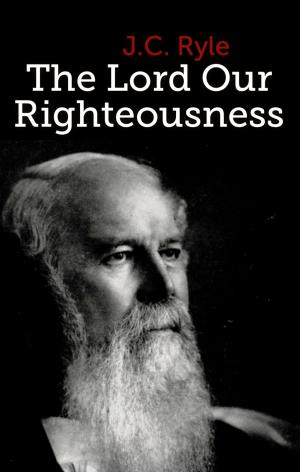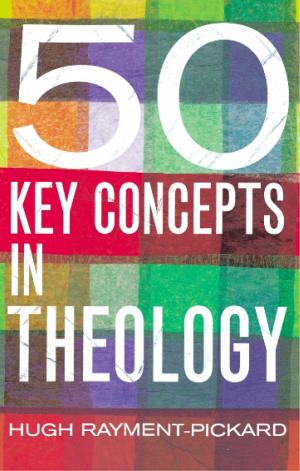Rare Spiritual Robotics
Nonfiction, Religion & Spirituality, Christianity, General Christianity, Theology| Author: | John McCann | ISBN: | 9780692227350 |
| Publisher: | John McCann | Publication: | May 3, 2014 |
| Imprint: | Smashwords Edition | Language: | English |
| Author: | John McCann |
| ISBN: | 9780692227350 |
| Publisher: | John McCann |
| Publication: | May 3, 2014 |
| Imprint: | Smashwords Edition |
| Language: | English |
An analogy is an object used to represent another object for the purpose of illustration, contrast and teaching. It is not an exact representation. Contemporary analogies are used to help people understand Scripture. A robot is a contemporary analogy. Similar to the Potter and clay analogy, a robot illustrates the control of God over His creation. Would man make a robot he could not control? Would God make a man He could not control? Some say, “Yes.” I say “No” based upon Scripture (see Rom. 9:21; Heb. 10:14-17). If man can control a robot, truly God can do the same with man.
The reasons for the robot analogy are:
1) The Designer knows how every part of the robot works.
2) The robot analogy isolates the importance of doing the will of the Lord.
3) The robot analogy illustrates control from a separate Power.
4) A robot is totally obedient, similar to a perfect Christian.
5) A robot must be programmed, similar to infused faith and a renewed mind.
6) A robot does commands. A Christian does commandments.
7) A robot does not expect praise for his actions because he does what is expected.
8) A robot does not compare itself to other robots because that would be unwise.
9) A robot must be controlled in order to accomplish meaningful tasks.
10) A robot is a creation. A Christian is a new creation.
The primary reason against the robot analogy is based upon man using his intellect and will or choosing what to do. However, this is limited to the borders of the natural world. And man is more complex than a robot. Man has a soul where decisions can be made. This can be sin when the mark is missed (see Jam. 5:17). When Holy Spirit is leading, man does not sin (see Rom. 8:2; Gal 5:16-18). The robot analogy is about the nature of God controlling the heart of man.
The robot analogy illustrates a vessel unable to do anything without a connection. There is a long list of connections in the Spiritual and physical realm that are beyond man’s control (see Ps. 2:3). Only the Designer knows where all fit and how they operate. The Bible identifies the connections. There is a connection that allows the Spirit to come upon a person in the Old Testament and the Spirit to be within a person in the New Testament that empowers the person to do the will of the Lord. Holy Spirit will glorify Jesus and the individual will have issues with recognition when he knows that Jesus did it. The flesh is about works of self-gratification, while the world operates from the consciousness of man, which can do both good and evil in the natural realm, but is not connected to the Spiritual.
Meanwhile, the Devil deceives on one end and destroys on the other. Jesus is superior to these and has come to give life and life more abundantly. There are two categories, unsaved and saved, that virtually all people fall within. Within these two categories are subcategories.
1. Unsaved
a. Natural people (89%)
b. Robots of the flesh (1%)
c. Robots of Satan (< 1/2%)
2. Saved
a. Disciples (9%)
b. Robots of Jesus (1%)
The percentages are speculation based upon Scripture and observation.
An analogy is an object used to represent another object for the purpose of illustration, contrast and teaching. It is not an exact representation. Contemporary analogies are used to help people understand Scripture. A robot is a contemporary analogy. Similar to the Potter and clay analogy, a robot illustrates the control of God over His creation. Would man make a robot he could not control? Would God make a man He could not control? Some say, “Yes.” I say “No” based upon Scripture (see Rom. 9:21; Heb. 10:14-17). If man can control a robot, truly God can do the same with man.
The reasons for the robot analogy are:
1) The Designer knows how every part of the robot works.
2) The robot analogy isolates the importance of doing the will of the Lord.
3) The robot analogy illustrates control from a separate Power.
4) A robot is totally obedient, similar to a perfect Christian.
5) A robot must be programmed, similar to infused faith and a renewed mind.
6) A robot does commands. A Christian does commandments.
7) A robot does not expect praise for his actions because he does what is expected.
8) A robot does not compare itself to other robots because that would be unwise.
9) A robot must be controlled in order to accomplish meaningful tasks.
10) A robot is a creation. A Christian is a new creation.
The primary reason against the robot analogy is based upon man using his intellect and will or choosing what to do. However, this is limited to the borders of the natural world. And man is more complex than a robot. Man has a soul where decisions can be made. This can be sin when the mark is missed (see Jam. 5:17). When Holy Spirit is leading, man does not sin (see Rom. 8:2; Gal 5:16-18). The robot analogy is about the nature of God controlling the heart of man.
The robot analogy illustrates a vessel unable to do anything without a connection. There is a long list of connections in the Spiritual and physical realm that are beyond man’s control (see Ps. 2:3). Only the Designer knows where all fit and how they operate. The Bible identifies the connections. There is a connection that allows the Spirit to come upon a person in the Old Testament and the Spirit to be within a person in the New Testament that empowers the person to do the will of the Lord. Holy Spirit will glorify Jesus and the individual will have issues with recognition when he knows that Jesus did it. The flesh is about works of self-gratification, while the world operates from the consciousness of man, which can do both good and evil in the natural realm, but is not connected to the Spiritual.
Meanwhile, the Devil deceives on one end and destroys on the other. Jesus is superior to these and has come to give life and life more abundantly. There are two categories, unsaved and saved, that virtually all people fall within. Within these two categories are subcategories.
1. Unsaved
a. Natural people (89%)
b. Robots of the flesh (1%)
c. Robots of Satan (< 1/2%)
2. Saved
a. Disciples (9%)
b. Robots of Jesus (1%)
The percentages are speculation based upon Scripture and observation.















